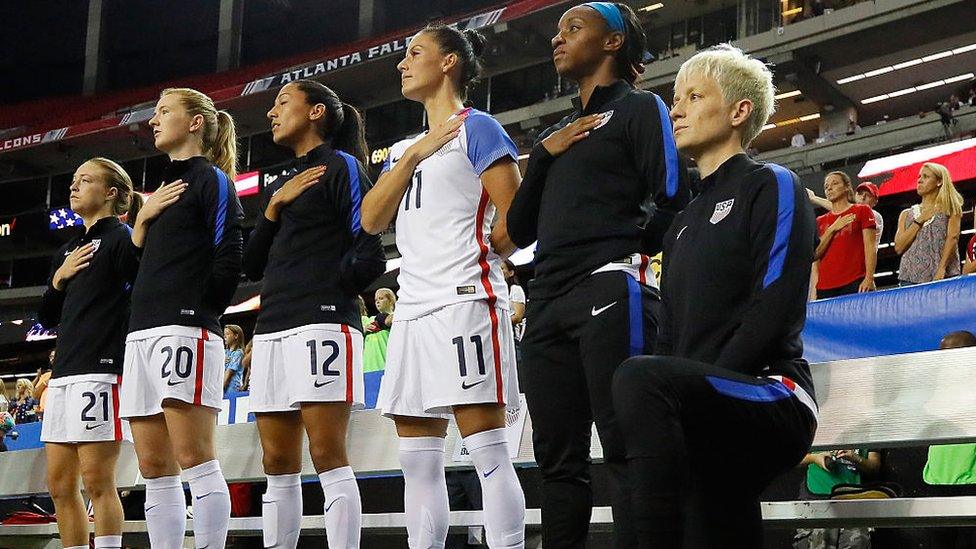Black Lives Matter: More than 1,000 at Newport protest
- Published
More than a thousand attended a demonstration in Newport
More than 1,000 people gathered in Newport to march in support of the Black Lives Matter movement.
Many carried placards bearing political slogans while others knelt on one knee - a protest against racism that stems from the US.
The demonstrators marched from the civic centre toward the University of South Wales building on the banks of the River Usk.
Drivers could be heard honking horns in support as they walked.
Outside the university, chants of "black lives matter" could be heard as speeches were given.
Organiser Andrew Ogun arrived in the UK aged five. He was born in Italy, where his mother had arrived as a refugee.
The 22-year-old said the event had gone better than he could have hoped for.
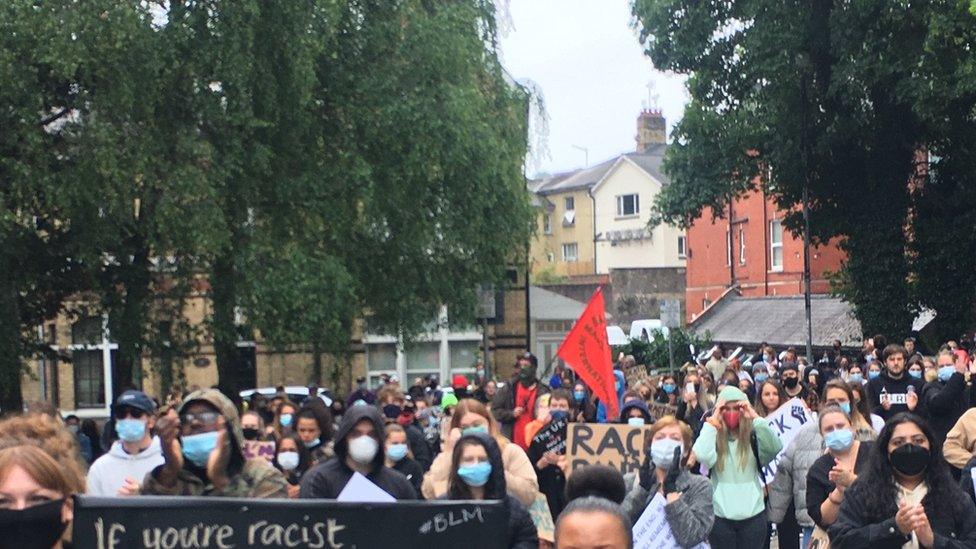
The protesters walked from the city's civic centre to the University of South Wales building near Friars Walk
"Everyone who was there - black, white, brown - attended with a clear vision and purpose," he said.
"The march was in response to the killing of George Floyd, but now it is about looking at what our new normality will look like.
"It has got to have justice and equality at its core.
"We are much more powerful together."
Mr Ogun said he had not watched the George Floyd video. "I'm tired of consuming this kind of trauma," he said.
"I don't think people realise the psychological impact of seeing someone that looks like you being killed."
As a rugby player Mr Ogun said he had experienced occasions of racism.
In parts of Wales, he said, he had been subjected to monkey chants, the N-word and other abuse.
At primary school a friend gave invites to all the other children but him. When he asked why, his friend said: "My mum said no black kids can come to my party."
"It can't keep being like this," Mr Ogun said.
"It is up to us to take a stand and make a change.
"It is time we got the ball rolling and made some real changes."
Gwent Police said they had worked with the organisers of the event.
The force said they were committed to encouraging people to adhere to social distancing rules.
"Our response to any public gathering will be fair and proportionate," a spokesman said.
"The right to lawful protest is a key part of any democracy, which UK police uphold and facilitate, however coronavirus remains a real threat and there are still restrictions in place to prevent its spread, which include the restrictions on gatherings."
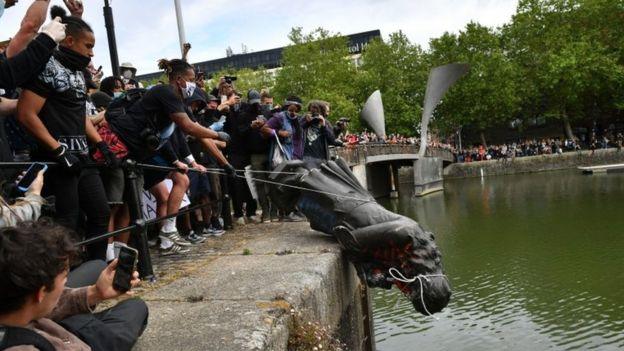
In Bristol a statue of slave trader Edward Colston was pushed into the harbour
It is not the first time protests have been sparked following the death of a black person in the custody of American police.
There were also rallies and calls for change after Tamir Rice, Michael Brown and Eric Garner were killed.
But this time the response has appeared more sustained and widespread.
In the US there have been protests in every state.
Demonstrations did not stop there. They spread across the world.
Before Thursday's protests in Newport, there were demonstrations in other UK cities including Cardiff, London and Bristol.
In Bristol a statue of slave trader Edward Colston was torn down and thrown into the harbour.
It was removed from the water on Thursday.

More on George Floyd's death
VIEWPOINT: Tipping point for racially divided nation
TIMELINE: Recent black deaths at hands of police
BACKGROUND: Five pieces of context to understand the protests
CRIME AND JUSTICE: How are African Americans treated?
- Published10 June 2020
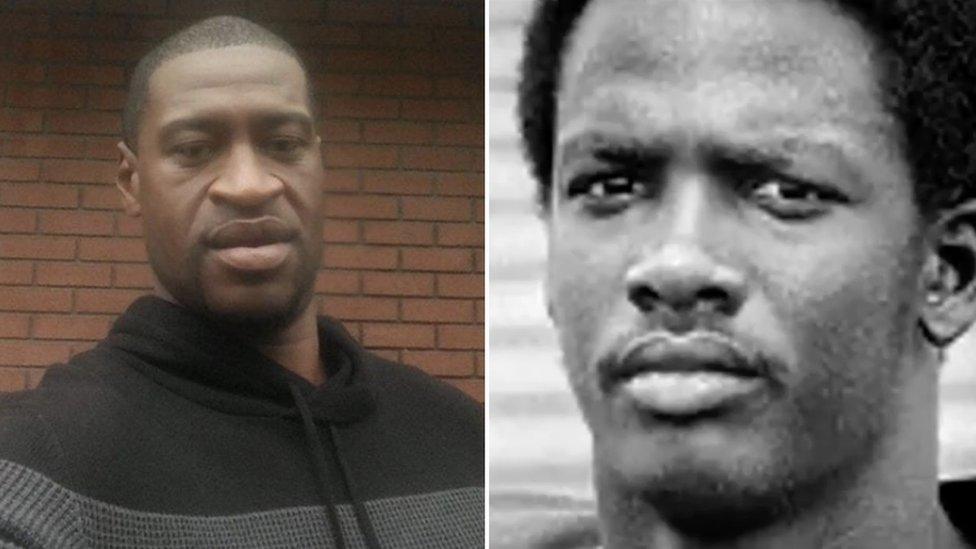
- Published10 June 2020
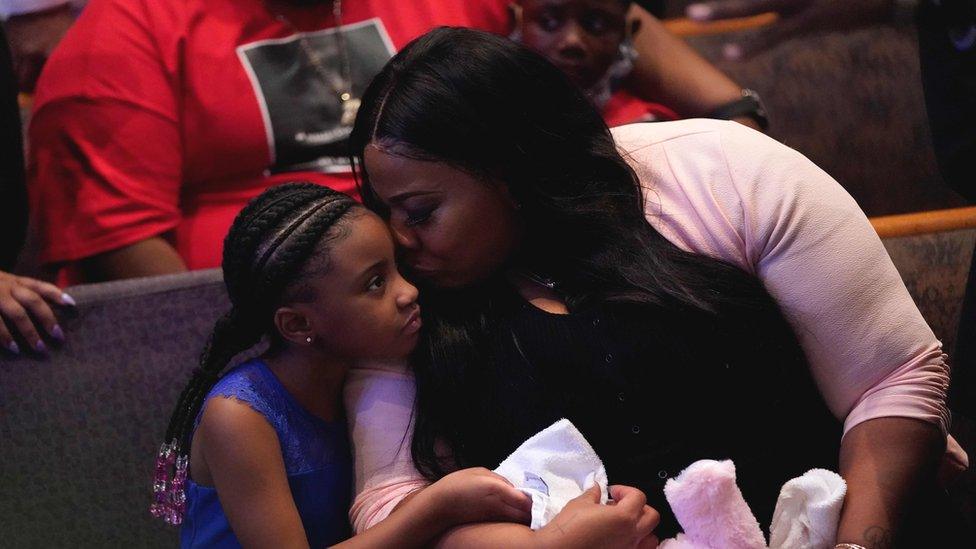
- Published11 June 2020
